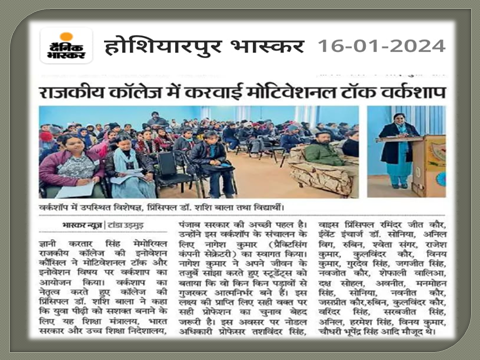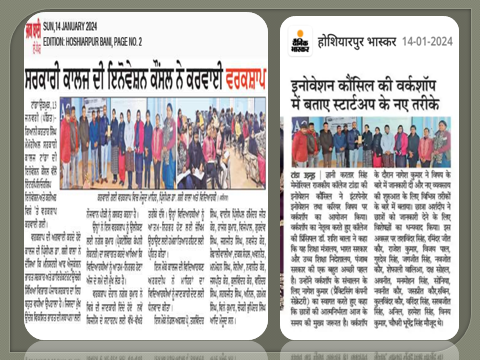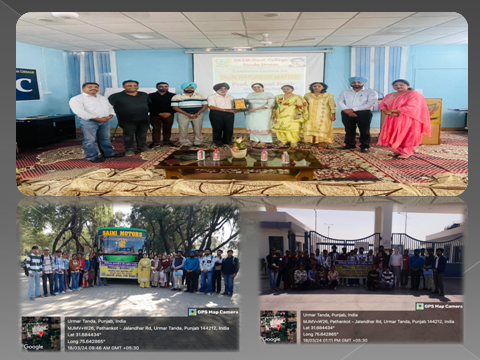Commerce Association
Commerce Association
The 21st century has witnessed remarkable transformations in the realm of business and commerce. The forces of liberalization and globalization are steadily bridging the gaps in the global economy, giving rise to the concept of a Global Village. In this era dominated by Information Technology, technological advancements are taking on multifaceted dimensions. Professionals in commerce and management cannot remain insulated from these rapid changes. They must be trained and equipped to navigate this ever-evolving landscape.
In light of these advancements, the Department of Commerce took the initiative to establish the Commerce Association on February 15th, 2004. The primary aim was to instill a competitive spirit, update knowledge, and foster managerial skills among students of the Commerce Department.
Objectives:
The Commerce Association is guided by the following main and supplementary objectives:
Main Objectives:
Knowledge Update: To keep students abreast of the latest developments in the fields of commerce and management.
Competitive Spirit: To nurture a sense of competition among students, encouraging them to excel.
Managerial and Entrepreneurial Skills: To cultivate managerial and entrepreneurial aptitude among students.
Career Awareness: To enlighten students about the myriad career opportunities available in the field of commerce.
Supplementary Objectives:
To effectively achieve these main objectives, the Commerce Association engages in a range of activities including:
Organizing quiz contests to test and enhance students' understanding.
Conducting seminars, extension lectures, and workshops to delve deeper into key topics and industry trends.
Career Guidance and Placement Cell
The Career Guidance And Placement Cell
The Career Guidance and Placement Cell at our college serves as a pivotal resource for students navigating the complex landscape of career choices. Committed to fostering informed decisions, the cell provides personalized guidance, aptitude assessments, and career-oriented workshops. Staffed with experienced teachers, it offers valuable insights into diverse professions, industry trends, and educational paths. Whether exploring potential majors, seeking internship opportunities, or preparing for job interviews, the cell equips students with the tools and knowledge needed for a successful transition from academia to the professional world. With a focus on holistic development, it empowers students to make informed choices aligning with their skills, interests, and aspirations.
OBJECTIVES
- Individualized Career Counselling: Provide personalized counselling sessions to students, addressing their unique skills, interests, and aspirations.
- Career Exploration: Facilitate exploration of various career options, industries, and emerging trends to help students make informed decisions.
- Skill Assessment: Conduct aptitude tests and skill assessments to identify and enhance students' strengths, guiding them towards suitable career paths.
- Professional Development: Offer workshops and training programs to enhance students' employability skills, including resume building, interview preparation, and networking.
- Industry Insight: Provide up-to-date information on various industries, job markets, and educational opportunities to align student expectations with current realities.
- Internship and Job Placement Assistance: Assist students in securing internships and job placements by connecting them with relevant opportunities and providing guidance on application processes.
- Educational Pathways: Guide students in choosing appropriate academic paths, including postgraduate studies, certifications, and other educational pursuits.
- Continuous Support: Establish an ongoing support system for students, helping them navigate career decisions throughout their academic journey and beyond.
- Networking Opportunities: Facilitate interactions between students and professionals, alumni, or industry experts through networking events, seminars, and mentorship programs.
- Promoting Lifelong Learning: Encourage a mindset of continuous learning and adaptation to prepare students for the evolving demands of the professional world.
MECHANISM
The mechanism of a Career Counselling and Guidance Cell involves a structured approach to providing comprehensive support to students. Here's an outline of the typical mechanisms:
- Needs Assessment:
- Continuously interact with students to understand the specific career-related needs and concerns of the students.
- Resource Development:
- Compile a repository of career-related resources, including information on various professions, industries, educational programs, and skill development opportunities.
- Counseling Sessions:
- Offer variouscounselling sessions where trained counsellors assess individual strengths, interests, and aspirations to provide personalized guidance.
- Workshops and Seminars:
- Organize workshops and seminars covering topics such as resume building, interview skills, networking, and industry insights to enhance students' employability.
- Skill Assessments:
- Administer aptitude tests, personality assessments, and skill evaluations to help students identify their strengths and areas for improvement.
College Career Counselling and placement cell comprises of following faculty members who remain engaged throughout the scholastic year
COMMITTEE MEMBERS
| Name of Teacher |
Designation |
Contact No. |
| Prof. Rajesh Kumar |
Assistant Professor |
9872494996 |
| Prof Rubin |
Assistant Professor |
7009206106 |
| Prof. Tashwinder Singh |
Assistant Professor |
9877447724 |
| Dr. Sonia |
Assistant Professor |
9463759086 |
| Prof Kavita |
Assistant Professor |
7837664121 |
Activities of Carrier Counselling & Guidence by Different Departments
Commerce Department




Physics Department


